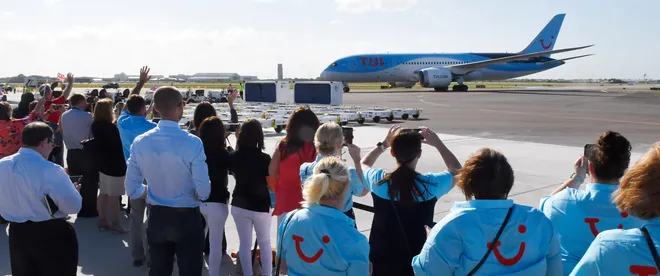New airport partnership supplies jet fuel for international flights
Port Canaveral’s Foreign Trade Zone #136 (FTZ) has expanded once again with the addition of Melbourne Orlando International Airport (MLB) as a FTZ Operator for the receipt, storage, and distribution of jet fuel for international flights operating from the airport.
Deliveries of jet fuel to MLB, solely intended for use on international flights is anticipated will average two to three truckloads per week.
“Our Foreign Trade Zone is a growing resource for area companies to build on their business now and into the future,” stated Port CEO Capt. John Murray. “This FTZ operating agreement with the airport helps support business development and job creation, contributing to the overall economic success of the Central Florida region.”

The airport joins a growing list of Port Canaveral FTZ #136 operators including Seaport Canaveral Corp., LLC, Airbus OneWeb Satellites, American Cruise Aid Logistics, and Raider Outboards.

“The expansion of FTZ #136 is a significant development for MLB, enabling us to streamline our operations in support of our growing international air service offerings,” said Melbourne Orlando International Airport spokesperson Keely Leggett.
“Moreover, the FTZ is a valuable economic tool that we can offer to attract and retain world-class tenants here at the airport.”
British airline TUI Airways, which recently began transatlantic flight service to MLB originating from various cities throughout the United Kingdom is projecting to fly in 135,000 tourists annually with its weekly service.
Additionally, TUI’s British cruise line Marella Cruises is expected to debut sailings from Port Canaveral in summer 2023, offering cruises to New York, New Orleans, Charleston, SC, Key West, and the Caribbean, increasing the number of foreign travelers to the Space Coast region.
/3535098E-0B14-4F8E-B2E4-81CDDC9EE168.jpeg.aspx)
Established in 1987, Port Canaveral’s Foreign Trade Zone #136 offers advantages to businesses dealing in international trade, such as free-trade cost discounts, duty-free storage and jet fuel for international flights.
The foreign trade zone concept was developed to encourage international trade by American companies and to preserve American jobs.














